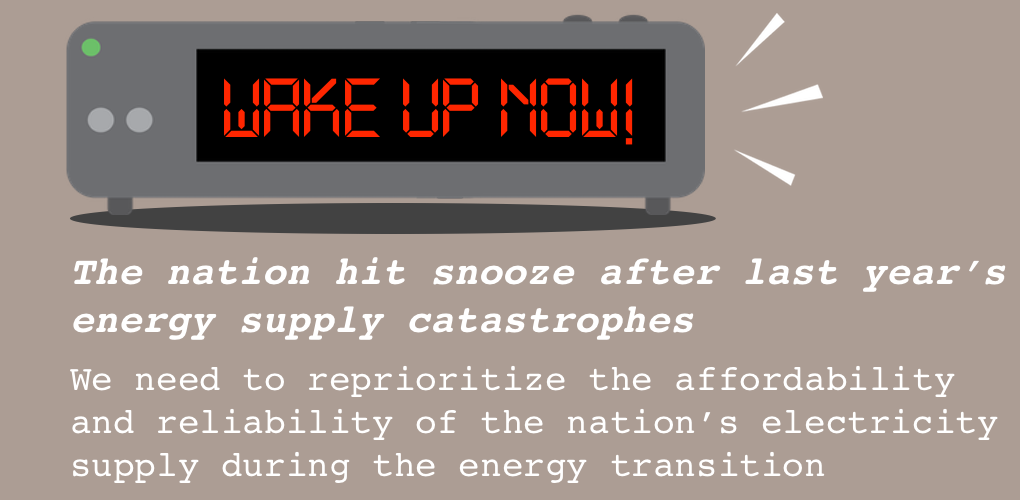
The Loss of Dispatchable Fuel Diversity Reverberates in Europe
U.S. coal generation came roaring back last year, rebounding 17% from 2020 and grabbing market share from higher priced natural gas. The U.S. coal fleet is proving to be an invaluable price shock absorber amid energy-driven inflation here at home and coal is also an equally important missing price shock absorber in Europe.
The U.S. hasn’t been immune to higher energy prices – with the U.S. Energy Information Administration pointing to rising natural gas prices as driving higher wholesale rates – but the pain for U.S. consumers hasn’t come close to the shock now facing European households.
The European energy crisis – driven largely by soaring natural gas prices and the unfortunate unavailability of renewable power at key moments – has seen wholesale electricity prices jump 300% since last winter. Households are set to pay an average of 54% more for energy than they did two years ago, according to Bank of America. The average European residential consumer will spend 1,850 euros ($2,095) on energy this year, up from 1,200 euros in 2020, an eye-watering increase despite government assistance. And that’s the average—price increases in some nations, such as the U.K., will be far higher.
So painful are soaring bills in Britain that some utilities (unbelievably) are recommending cuddling the cat to stay warm since many consumers won’t be able to afford turning up the thermostat. Eat porridge and other complex carbohydrates one note suggests because they take longer to digest and create more body heat in the process. This may all seem surreal in the year 2022 but the sobering reality is that millions are having to choose between soaring energy bills and other necessities, and they’re doing so because of glaring policy missteps.
“Undiversifying” Baseload Power Supply
As columnist Holman Jenkins recently observed in The Wall Street Journal, “Europe’s mess has been framed as a story of many influences—the proverbial perfect storm. But it’s really a story of one thing, coal, plus hypocrisy.” He continues, “by undiversifying its base-load power supply… Europe has invited all the consequences you read about: ill-advised reliance on Russian natural gas, frantic bidding wars with China for liquefied-gas shipments, fear of rolling blackouts whenever a French nuclear plant needs maintenance or the wind dies down or the sun goes behind a cloud.”
What Jenkins correctly identifies is that Europe’s crisis is a failure of policy, of a particularly poor approach to the energy transition that has limited supply of essential fuels and generating capacity while failing to provide anything close to adequate alternatives. He warns, “a lot more of this may be on the way if the developed world keeps playing Russian roulette with its energy supply, a vital underpinning of a modern society and foundation of every voter’s well-being.” Absent a policy course correction, a lot more is on the way here in the U.S.
The accelerating race to dismantle the existing grid well before the grid of the future and associated infrastructure are in place is producing ever-louder warnings of a reliability and affordability crisis from regulators and grid operators. Coal plants, and the critically important dispatchable fuel diversity they provide, remain under pressure from misguided state and federal policy that are entirely focused on future goals at the expense of current operations. Reserve margins continue to shrink, fuel assurance is evaporating and the reliability of the nation’s power supply is crumbling while consumers’ exposure to potential energy price spikes is growing.
Europe’s energy crisis should be an unmistakable wakeup call to reprioritize the affordability and reliability of the nation’s electricity supply during the energy transition. If the nation hit snooze after the catastrophe in Texas last February and rolling blackouts in California, dismissing them as regional anomalies, Europe’s ongoing crisis is too painful and prescient to ignore. Dispatchable fuel diversity and fuel security are the bedrock of electricity reliability and affordability. Energy policy must reinforce, not dismantle, them.
- On January 12, 2022
